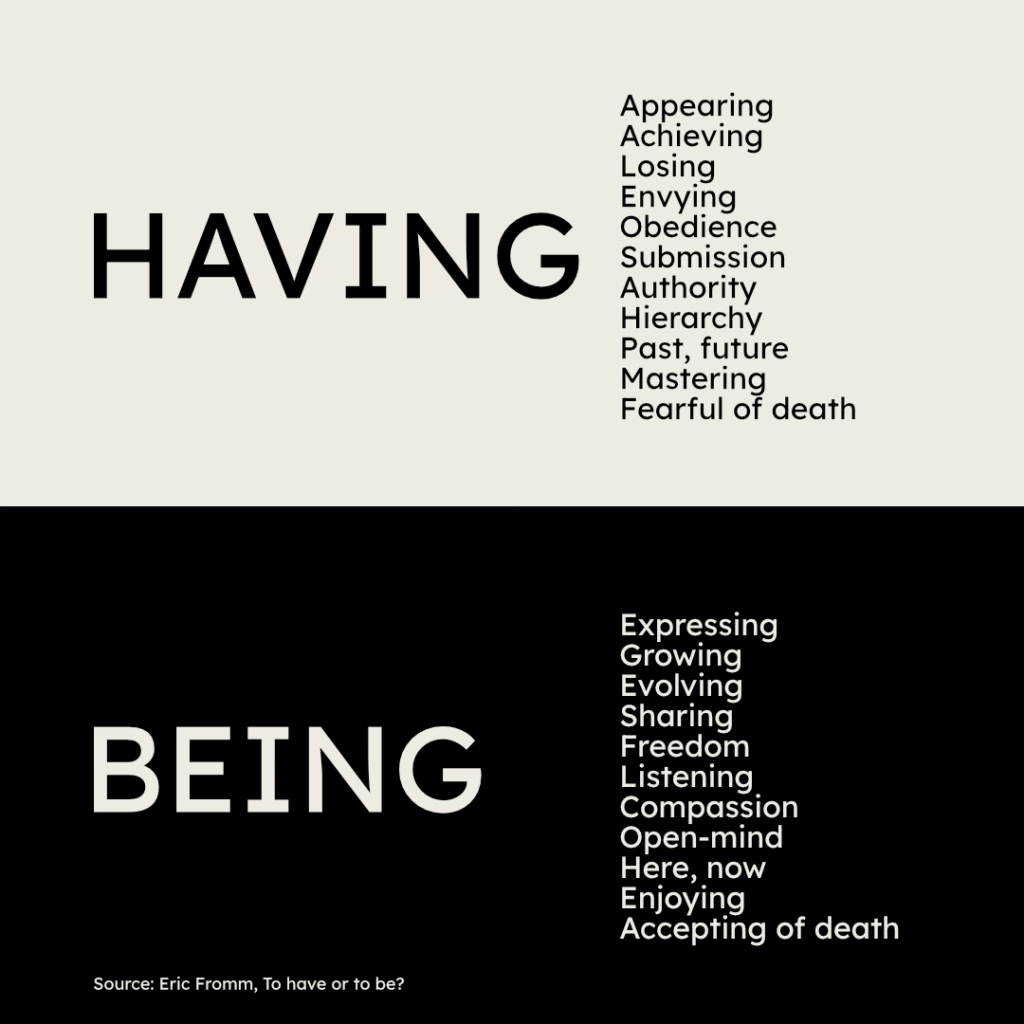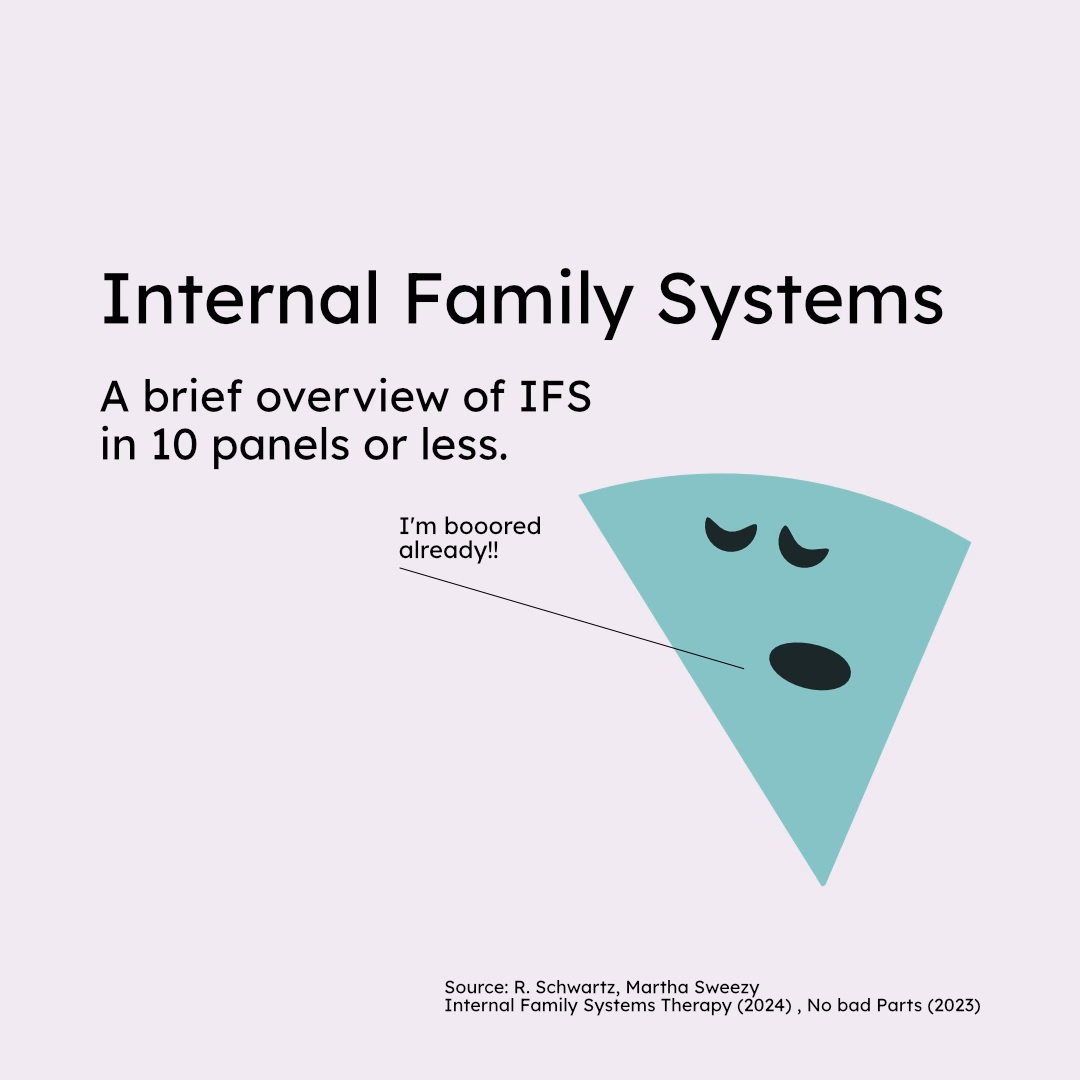Your cart is currently empty!
Having vs being as modes of existence
Erich Fromm was a humanist philosopher and psychoanalyst associated with critical theory.
He blended the analysis of social and psychological factors to explore different philosophies of living.
In To Have or To Be?, he examines two broad perspectives on life.
—
He explored how spiritual and cultural traditions have intertwined with structures of power to shape distinct “modes of existence”. He classified them as “having” and “being.”

Fromm argued—50 years ago—that we live in a having culture. How tragic it is to consider that he would resent how he predicted our trajectory.
The having attitude
Immersed in this having culture, we often fail to recognize that alternatives exist. We never question the ingrained beliefs that sustain this perspective. To challenge these attitudes is to risk a label: mad, strange, a black sheep, a hippie, lazy.
Fromm’s critique goes beyond vanity. We are not talking about owning a nice car or taking holidays to interesting places. It addresses the pervasive attitudes sustaining the having mode of existence.
Having is about possession, but it is far more encompassing. It is a rigid mindset that leads us to prove our worth by engaging in activities that result in achieving. What our objects of desire may be depends on our cultural context. For some people, it will be about career achievements. For others, it may relate to social prestige. What matters is that without those things, the person feels incomplete. A fraud, a failure.
This “having attitude” lives in many different activities and attitudes that underpin it.

Appearing is a good example. People in a having mode of existence seek to represent the attributes they value. In turn, they shy away from showing anything contradictory. For example, a job promotion shows “we are doing well” because we appear competent to others. And this is secondary to our feelings of competence.
For those in the having mode,
- Losing hurts
- Obeying pays off
- Authorities and hierarchies are constructive
- Wasting time is a crime
- Mastering a skill beats the enjoyment of acquiring it
- Death is the ultimate loss – and thus it’s feared and ignored.
The being attitude
Being, in contrast, represents an opposing mode of existence. While having is outward-facing, being is inward-facing.
The being attitude affirms life, no matter where we find ourselves on its journey. Being is not about not-having. Being is about enjoying what we have without becoming too attached to it. It’s about expressing our true nature in an accepting, compassionate, joyful way.

For those in the being mode,
- Growing and evolving matters more than achieving and losing.
- Sharing is healthier than accumulating
- Protecting existential freedom is worth the anxiety we get from having it
What Fromm is offering is a framework of self-awareness.
We can review our attitudes and behaviours to inspect their having/being make-up.
We can trace having attitudes and find their origins. They may lead us to places of hurt, fear, or anxiety we need to tend to.
And when we find being attitudes we notice, enjoy and celebrate them.





